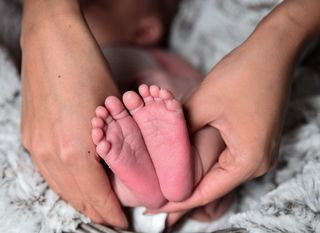Health
The Benefits of Paid Maternity Leave for Maternal and Child Health
New research reviews the benefits of maternity leave.
Posted March 11, 2020 Reviewed by Gary Drevitch

About 23 percent of employed women in the U.S. return to work within 10 days of giving birth. An evidence-based review published in the Harvard Review of Psychiatry earlier this week, which was authored by my team and I, shows that paid maternity leave is linked with significant physical and mental health benefits for mothers as well as their children. (You can read this publication here.)
According to this review, just 16 percent of working Americans have paid maternity leave through their employer. Our research draws on evidence from 26 experimental or quasi-experimental studies, and demonstrates a link between paid maternity leave and a lower likelihood of postpartum depression, lower psychological distress, and better mood among mothers. From the standpoint of the child's health, paid maternity leave is linked with a higher quality of mother-child interactions and beneficial impact on infant attachment. Not only that; there is also evidence of greater academic achievement for children whose mothers received paid maternity leave.
In addition, the evidence in this review reveals several other vital benefits of paid maternity leave, such as a lowering of infant mortality, a decrease in hospitalizations of mothers and infants, and an increase in the initiation and duration of breastfeeding. The likelihood that a mother will follow the WHO's recommendation of six months of exclusive breastfeeding is greater with appropriate duration and availability of paid maternity leave. Breastfeeding itself confers several physical and mental health benefits for the infant, including but not limited to strengthening immunity and enhancing mother-infant bonding.
Among other benefits, the review also found that the duration of maternity leave was a significant factor, with greater duration being associated with an increased likelihood of breastfeeding, in addition to evidence that lesser duration of paid maternity leave is linked with greater risk of maternal depression. Based on the evidence so far, there is a need for at least 12 weeks of paid maternity leave for all employed women.
There are societal benefits of paid maternity leave, too, in the form of enhanced labor force attachment, wage stability, and a lesser need for public welfare. No adverse economic effects of paid maternity leave have been found in the studies.
This research points out the substantial evidence delineating significant physical and mental health benefits to mothers, children and families. Given the millions of mothers, children, and families affected by the availability or lack thereof of paid maternity leave, this topic is of significant public health importance.
References
Van Niel MS, Bhatia R, Riano NS, et al. The Impact of Paid Maternity Leave on the Mental and Physical Health of Mothers and Children: A Review of the Literature and Policy Implications: A Review of the Literature and Policy Implications. Harvard Review of Psychiatry: March/April 2020 - Volume 28 - Issue 2 - p 113-126. doi: 10.1097/HRP.0000000000000246


